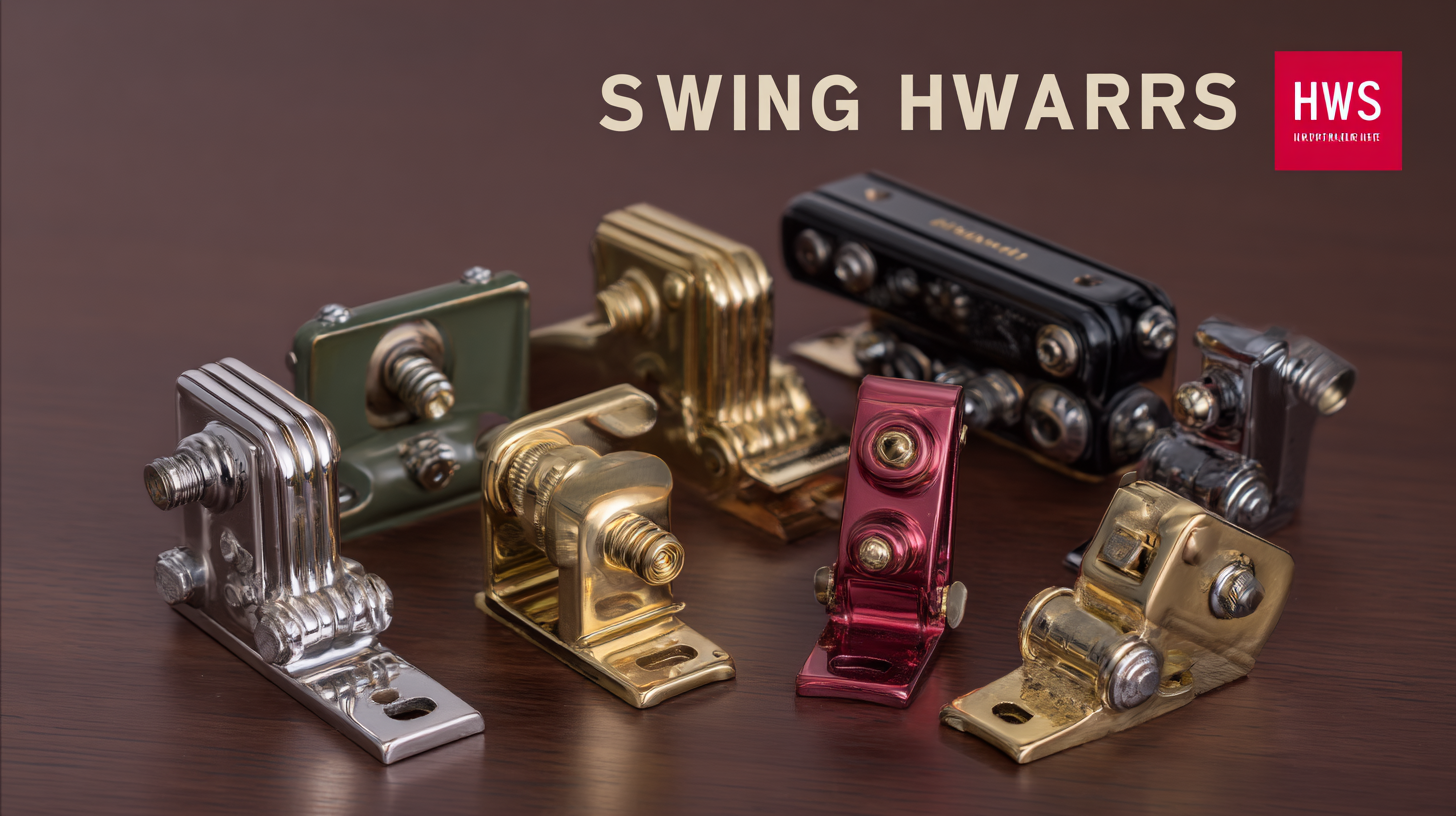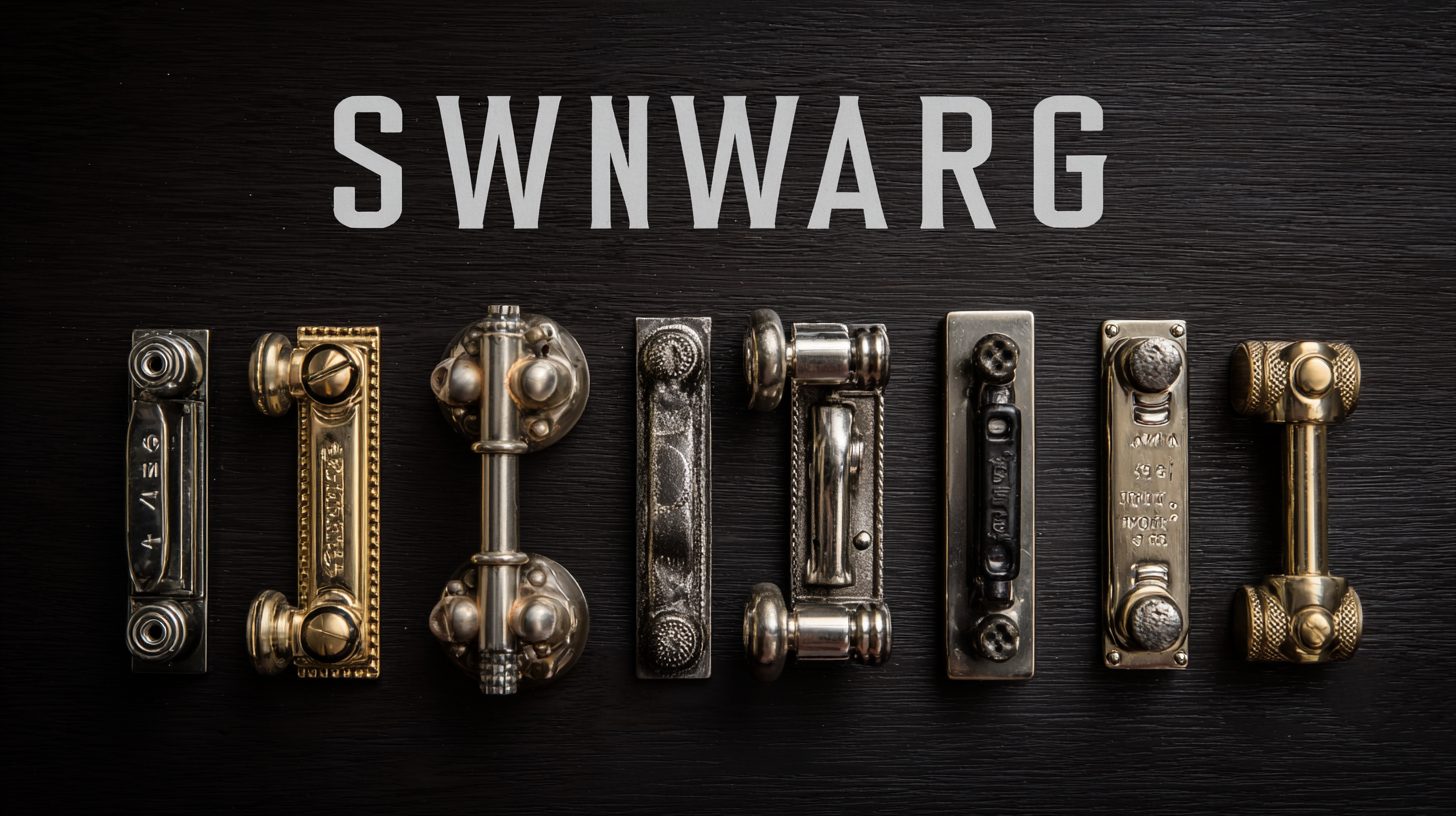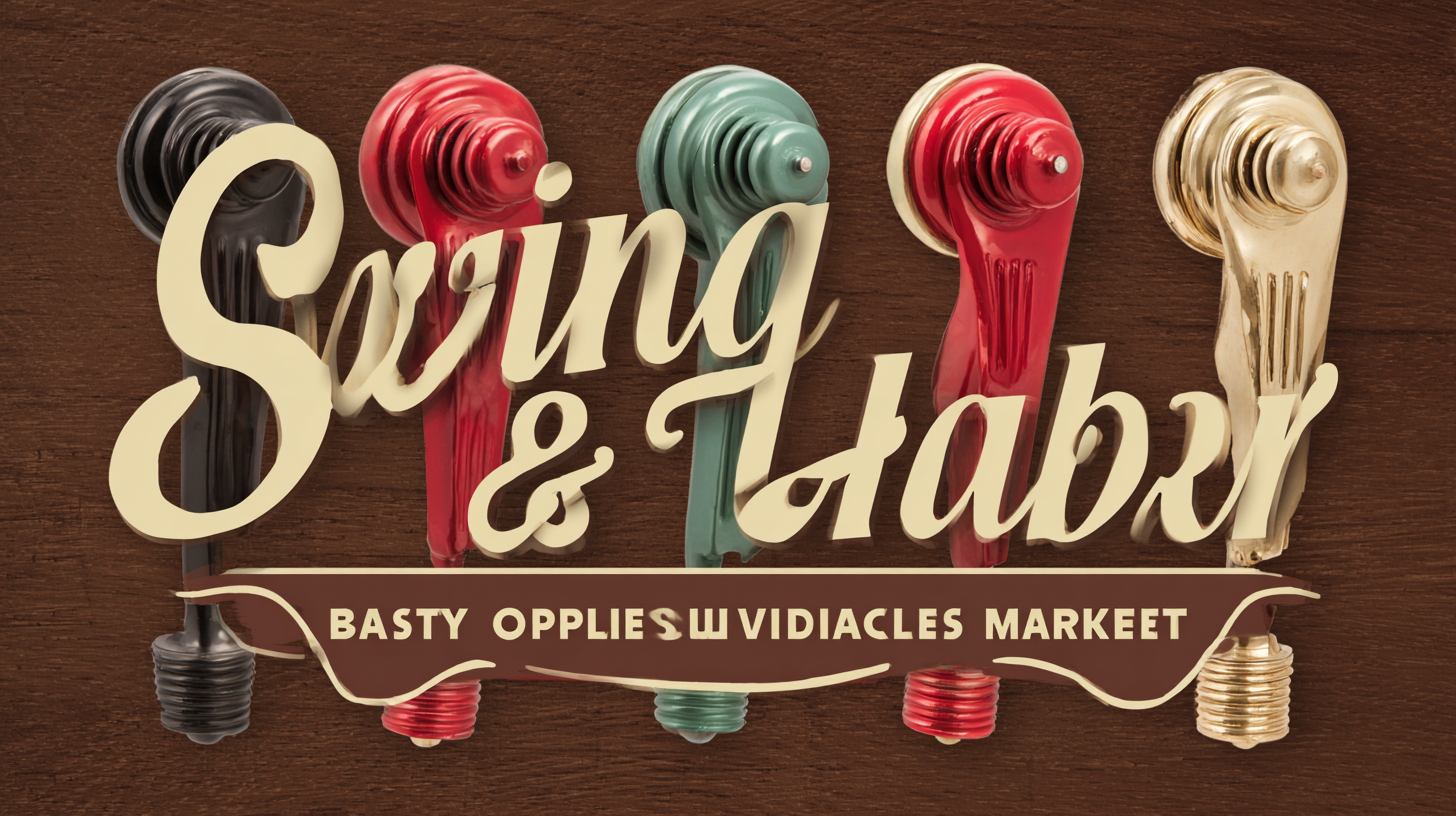
How to Identify Quality Suppliers for Best Swing Hardware in a Competitive Market
In today's competitive market, identifying quality suppliers for swing hardware is crucial for businesses looking to enhance their product offerings and ensure customer satisfaction. According to a report by IBISWorld, the global hardware manufacturing industry is projected to grow by 3.5% annually, reaching $1 trillion by 2025. As the demand for durable and reliable swing hardware increases, companies must navigate a myriad of suppliers, each claiming to provide the best products. However, distinguishing between high-quality suppliers and those that merely promise quality can be challenging. By evaluating key factors such as supplier reliability, product specifications, and market reputation, businesses can better position themselves to select partners that not only meet but exceed their expectations in supplying top-notch swing hardware. In this guide, we will explore essential strategies for identifying reputable suppliers and making informed decisions that contribute to long-term success.

Identifying Key Criteria for Evaluating Swing Hardware Suppliers
When searching for quality suppliers for swing hardware, it is essential to establish key criteria that will aid in evaluating potential partners effectively. First and foremost, consider the supplier's reputation in the market. Look for those who have a solid track record of delivering high-quality products consistently, as positive testimonials and industry certifications can serve as indicators of reliability. Additionally, engage in discussions with other businesses to gather insights about their experiences with various suppliers, which can further inform your decision-making process.
Another critical criterion is the supplier's ability to innovate and adapt to changing market demands. The best swing hardware suppliers should not only provide standard products but also showcase a commitment to research and development. This capability ensures they can offer modern solutions that meet evolving safety standards and technological advancements. Additionally, evaluate the supplier’s customer service and support. A responsive supplier who values communication can simplify the procurement process and help resolve any issues swiftly, ultimately enhancing your operational efficiency. By focusing on these key criteria, businesses can identify suppliers that not only meet immediate needs but also foster long-term partnerships.
How to Identify Quality Suppliers for Best Swing Hardware in a Competitive Market
| Criteria | Weight (%) | Rating (1-5) | Score |
|---|---|---|---|
| Product Quality | 30 | 4 | 120 |
| Pricing | 25 | 3 | 75 |
| Delivery Time | 20 | 5 | 100 |
| Customer Service | 15 | 4 | 60 |
| Reputation | 10 | 5 | 50 |
| Compliance and Certifications | 5 | 3 | 15 |
| Total Score | 420 | ||
Understanding the Importance of Certifications and Quality Standards
In the competitive landscape of 2025, understanding the significance of certifications and quality standards is crucial for businesses seeking to identify quality suppliers for swing hardware. Certifications such as ISO 9001, which focuses on quality management systems, have gained recognition as key indicators of a supplier's commitment to quality. Research shows that organizations implementing ISO 9001 can see a 15% increase in customer satisfaction rates, underscoring the standard's value in fostering trust and reliability in supplier relationships.
Moreover, sustainability certifications are gaining traction as consumers become more environmentally conscious. However, the proliferation of certifications raises questions about their authenticity, especially in combating greenwashing. A study by industry experts indicates that companies with genuine sustainable certifications report a 20% increase in customer loyalty compared to those without. This distinction not only enhances brand reputation but also aligns with Total Quality Management (TQM) principles, driving businesses towards improved operational efficiency and customer satisfaction. Investing in recognized quality standards is not merely a compliance measure; it is a strategic advantage that equips businesses to thrive in a saturated market.

Strategies for Assessing Supplier Reliability and Performance
Identifying quality suppliers for swing hardware in a competitive market requires a strategic approach to assessing their reliability and performance. One effective strategy is to establish clear criteria for evaluation. This may include factors such as the supplier's experience, production capabilities, certification standards, and customer feedback. By creating a scoring system based on these criteria, businesses can objectively compare potential suppliers and narrow down their options effectively.
Another crucial aspect is conducting thorough due diligence. This involves visiting supplier facilities to evaluate their operations firsthand, reviewing their financial stability, and checking references from other clients. Engaging in a trial order can also provide insight into the supplier’s quality and service level. Additionally, maintaining an open line of communication with suppliers can foster transparency and build a trusting relationship, which is essential in ensuring long-term reliability. By employing these strategies, businesses can confidently secure partnerships with suppliers who not only meet their needs but also contribute to their competitive advantage in the market.
Supplier Reliability Assessment in Swing Hardware Market
Exploring Innovations and Technology in Swing Hardware Manufacturing
In the realm of swing hardware manufacturing, innovation and technology are pivotal in distinguishing quality suppliers in a competitive market. Recent industry reports indicate that the global market for swing hardware is projected to reach $2.8 billion by 2025, growing at a CAGR of 4.7% from 2021. This growth is largely driven by advancements in materials and production techniques. Suppliers adopting state-of-the-art technology, such as automated machining and precision molding, ensure greater accuracy and durability in their products, thus enhancing overall safety and performance for consumers.
Moreover, sustainability has emerged as a significant trend influencing purchasing decisions. According to a 2023 survey by the Manufacturing Association, 68% of industry buyers prioritize suppliers who utilize eco-friendly materials and processes. By integrating green technologies, such as recyclable components and energy-efficient production methods, suppliers not only meet market demand but also contribute to a more sustainable industry landscape. This focus on innovation not only helps in complying with regulations but also attracts environmentally-conscious consumers, thereby positioning quality suppliers favorably in a competitive market.
Building Strong Relationships with Suppliers to Ensure Long-term Success
 Building strong relationships with suppliers is essential for any business looking to succeed in the competitive market of swing hardware. These relationships go beyond simple transactions; they involve mutual trust, communication, and collaboration. When you invest time and effort into understanding your suppliers' capabilities and challenges, you create a foundation for long-term success. This collaboration allows for better negotiation terms, exclusive access to high-quality materials, and innovative solutions tailored to your specific needs.
Building strong relationships with suppliers is essential for any business looking to succeed in the competitive market of swing hardware. These relationships go beyond simple transactions; they involve mutual trust, communication, and collaboration. When you invest time and effort into understanding your suppliers' capabilities and challenges, you create a foundation for long-term success. This collaboration allows for better negotiation terms, exclusive access to high-quality materials, and innovative solutions tailored to your specific needs.
Moreover, fostering a positive rapport with suppliers can lead to improved responsiveness and reliability. When suppliers know they are valued partners, they are often more willing to prioritize your orders and provide exceptional service. Regular communication, feedback, and joint problem-solving can strengthen these bonds, allowing both parties to adapt to changing market demands swiftly. Ultimately, these strong relationships not only ensure the quality of your swing hardware but also contribute to your business's overall resilience and growth in a crowded marketplace.